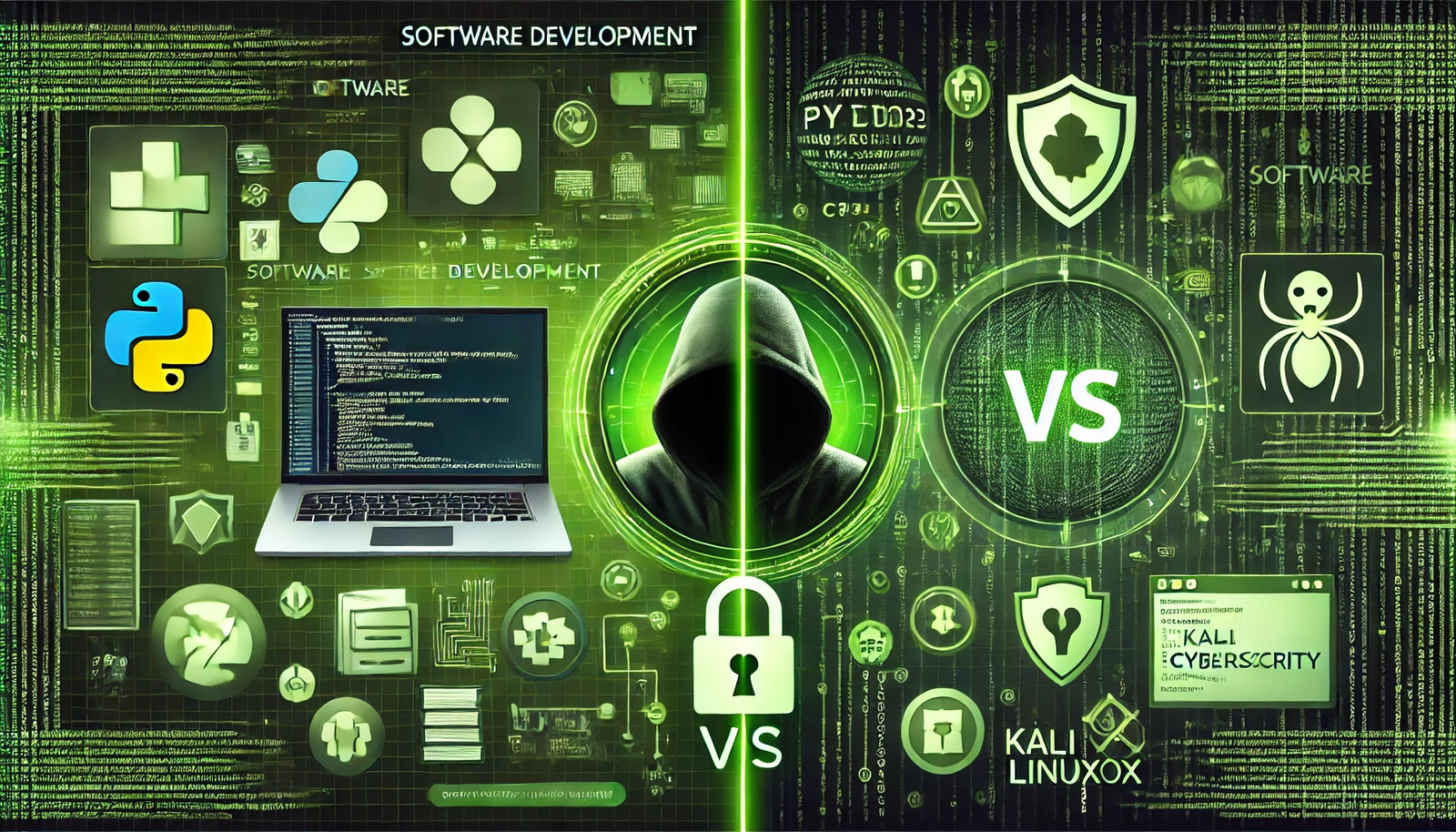Balancing Passion, Paychecks, and Projections in the Tech Industry
The rapid evolution of technology has created two powerhouse career paths: software development and cybersecurity. Both fields promise lucrative salaries, job security, and opportunities to shape the digital future. Yet, as a computer science student, choosing between them requires analyzing hard data, industry trends, and personal alignment. Leveraging statistics, salary benchmarks, and growth projections, this essay dissects which path offers better long-term stability and rewards in an increasingly competitive and threat-laden world.
Software Development: The Engine of Innovation
1. Market Demand and Saturation
Software development remains the cornerstone of the tech sector, with the U.S. Bureau of Labor Statistics (BLS) projecting a 25% growth rate (2022–2032) for software developers, far outpacing the average for all occupations. However, entry-level roles are saturated: over 1.8 million developers work in the U.S. alone, and bootcamp graduates flood the market. Yet, specialization mitigates saturation:
- AI/ML Engineers: Demand surged by 74% in 2023 (LinkedIn), with average salaries reaching $170,000 USD (Glassdoor).
- Cloud Developers: AWS, Azure, and Google Cloud expertise commands $140,000–$160,000 USD annually.
2. Salary Benchmarks
- Median U.S. salary: $124,200 USD (BLS, 2023).
- Top 10% earners: $208,000+ USD (roles in fintech, quantum computing, or FAANG companies).
3. Long-Term Risks
- Automation Threat: Low-code tools and AI (e.g., GitHub Copilot) could displace 30% of routine coding jobs by 2030 (Gartner).
- Global Competition: Outsourcing to regions with lower labor costs (e.g., India, Eastern Europe) pressures salaries for generic roles.
Verdict: Software development thrives for specialists in emerging niches but demands relentless upskilling to avoid commoditization.
Cybersecurity: The Digital Shield
1. Explosive Demand and Talent Gap
Cybercrime damages will hit $10.5 trillion USD annually by 2025 (Cybersecurity Ventures), fueling urgent hiring. Key stats:
- 3.5 million global cybersecurity jobs remain unfilled (Cyberseek, 2024).
- BLS projects a 32% growth rate (2022–2032) for information security analysts.
2. Salary Benchmarks
- Median U.S. salary: $120,360 USD (BLS, 2023).
- Specialized roles:
- Penetration Testers: $130,000–$150,000 USD (Offensive Security).
- Cloud Security Architects: $180,000+ USD (AWS-certified professionals).
- CISO Salaries: Top executives earn $350,000–$550,000 USD in Fortune 500 firms.
3. Certification ROI
Certifications bridge the experience gap and boost earnings:
- CISSP: Average salary bump of 25% (to $150,000 USD).
- OSCP (Ethical Hacking): Certified professionals earn $135,000 USD (40% above non-certified peers).
4. Job Security and Stress
- Zero Unemployment: Cybersecurity’s talent shortage ensures near-zero unemployment.
- Burnout Rates: 45% of SOC analysts report high stress due to 24/7 threat monitoring (SANS Institute).
Verdict: Cybersecurity offers recession-proof demand but requires heavy upfront investment in certifications and niche skills.
Head-to-Head Comparison FactorSoftware DevelopmentCybersecurityEntry-Level Salaries $75,000–$95,000 USD $70,000–$85,000 USD Mid-Career Earnings $120,000–$160,000 USD $130,000–$180,000 USD Top Industries Tech, Finance, Healthcare SaaS Government, Finance, Healthcare Automation Risk Moderate (AI-assisted coding) Low (human judgment critical) Global Opportunities High (remote-friendly) High (governments mandate local hires)
The Hybrid Advantage: Bridging Both Worlds
Modern tech demands professionals who blend coding prowess with security acumen:
- DevSecOps Engineers: Integrate security into development pipelines, earning $140,000–$170,000 USD.
- Secure Software Developers: Fix vulnerabilities in codebases; salaries average $135,000 USD.
- AI Security Specialists: Protect ML models from adversarial attacks; niche roles pay $200,000+ USD.
Your background in Python, C++, and MERN stack positions you uniquely for these hybrid roles.
Follow the Data (and Your Gut)
- Choose Software Development if:
- You love creating products, thrive in collaborative environments, and are willing to pivot into niches like AI or blockchain.
- Stat to Remember: The global software market will grow to $1.5 trillion USD by 2027 (Statista).
- Choose Cybersecurity if:
- You’re fascinated by threat intelligence, enjoy forensic puzzles, and want to work in mission-critical roles.
- Stat to Remember: Cyber insurance premiums will exceed $25 billion USD annually by 2025 (McKinsey), reflecting industry reliance on experts.
Final Word: While cybersecurity’s talent gap and crisis-driven demand give it a slight edge in long-term stability, software development offers unparalleled creative freedom. Align your choice with the problems you want to solve—building the future or protecting it—and let passion drive your upskilling journey.



